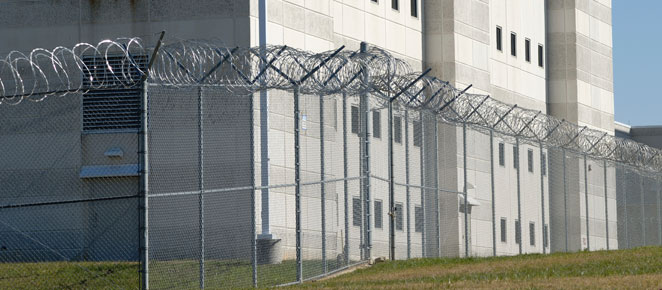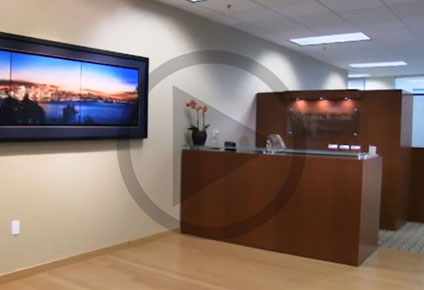Vehicular Manslaughter Defense Attorneys
Vehicular manslaughter occurs when an individual recklessly causes the death of another person through the use of any type of motor vehicle.
Although people often think of vehicular manslaughter in the context of a DUI offense, the charge actually has a much broader application. The charge of vehicular manslaughter itself can apply to a variety of situations that do not include alcohol. If a person recklessly causes the death of another while operating a motor vehicle, they could be charged with vehicular manslaughter. Examples include not obeying traffic signs or speed limits, texting while driving, road rage and street racing. Reckless conduct is broadly defined and a wide range of actions could qualify as a charge of vehicular homicide.
Vehicular manslaughter is a “wobbler” in the state of California, meaning you can be charged with a misdemeanor or a felony depending on the specific facts of the case.
If you are charged with a misdemeanor, you could be punished for up to 1 year in the county jail. If you are charged with a felony, the penalties are far more severe. The penalties for a felony range from 16 months to 15 years to life in state prison.
Gross Vehicular Manslaughter or Vehicular Manslaughter While Intoxicated is defined by Penal Code section 191.5:
191.5. (a) Gross vehicular manslaughter while intoxicated is the unlawful killing of a human being without malice aforethought, in the driving of a vehicle, where the driving was in violation of Section 23140, 23152, or 23153 of the Vehicle Code, and the killing was either the proximate result of the commission of an unlawful act, not amounting to a felony, and with gross negligence, or the proximate result of the commission of a lawful act that might produce death, in an unlawful manner, and with gross negligence.
(b) Vehicular manslaughter while intoxicated is the unlawful killing of a human being without malice aforethought, in the driving of a vehicle, where the driving was in violation of Section 23140, 23152, or 23153 of the Vehicle Code, and the killing was either the proximate result of the commission of an unlawful act, not amounting to a felony, but without gross negligence, or the proximate result of the commission of a lawful act that might produce death, in an unlawful manner, but without gross negligence.
(c) (1) Except as provided in subdivision (d), gross vehicular manslaughter while intoxicated in violation of subdivision (a) is punishable by imprisonment in the state prison for 4, 6, or 10 years.
(2) Vehicular manslaughter while intoxicated in violation of subdivision (b) is punishable by imprisonment in a county jail for not more than one year or by imprisonment pursuant to subdivision (h) of Section 1170 for 16 months or two or four years.
(d) A person convicted of violating subdivision (a) who has one or more prior convictions of this section or of paragraph (1) of subdivision (c) of Section 192, subdivision (a) or (b) of Section 192.5 of this code, or of violating Section 23152 punishable under Sections 23540, 23542, 23546, 23548, 23550, or 23552 of, or convicted of Section 23153 of, the Vehicle Code, shall be punished by imprisonment in the state prison for a term of 15 years to life. Article 2.5 (commencing with Section 2930) of Chapter 7 of Title 1 of Part 3 shall apply to reduce the term imposed pursuant to this subdivision.
Vehicular Manslaughter is defined by Penal Code section 192(c):
(c) Vehicular-
(1) Except as provided in subdivision (a) of Section 191.5, driving a vehicle in the commission of an unlawful act, not amounting to felony, and with gross negligence; or driving a vehicle in the commission of a lawful act which might produce death, in an unlawful manner, and with gross negligence.
(2) Driving a vehicle in the commission of an unlawful act, not amounting to felony, but without gross negligence; or driving a vehicle in the commission of a lawful act which might produce death, in an unlawful manner, but without gross negligence.
(3) Driving a vehicle in connection with a violation of paragraph (3) of subdivision (a) of Section 550, where the vehicular collision or vehicular accident was knowingly caused for financial gain and proximately resulted in the death of any person. This provision shall not be construed to prevent prosecution of a defendant for the crime of murder.
This section shall not be construed as making any homicide in the driving of a vehicle punishable that is not a proximate result of the commission of an unlawful act, not amounting to felony, or of the commission of a lawful act which might produce death, in an unlawful manner.
“Gross negligence,” as used in this section, shall not be construed as prohibiting or precluding a charge of murder under Section 188 upon facts exhibiting wantonness and a conscious disregard for life to support a finding of implied malice, or upon facts showing malice, consistent with the holding of the California Supreme Court in People v. Watson, 30 Cal. 3d 290.
Murder
The California Penal Code defines Murder as “the intentional killing of a person with ‘malice aforethought’ or premeditated thought and the intent of killing someone.” Murder is separated into degrees.
First Degree Murder: is a murder which is willful, deliberate, and premeditated killing, or committed during the commission of certain felonies.
Second Degree Murder: Murder in the second degree is any murder not covered by any of the above categories or that does not involve special circumstances.
Voluntary Manslaughter is an intentional killing that occurs in the heat of the moment. A person accused of committing voluntary manslaughter had no intent to kill.
Involuntary Manslaughter is an unintentional killing that is caused by reckless behavior or criminal negligence.
No crime is more serious than a murder charge. Every person charged with murder deserves dedicated and experienced representation and a fair trial. If you have been charged with murder, contact the law offices of O’Connor, Runckel & O’Malley today to review your case. As former Deputy District Attorneys and a Superior Court Judge, with over 90 years of experience, Thomas O’Connor, Jason Runckel & Dan O’Malley have extensive experience handling high-profile Special Circumstance Murders, First Degree Murders, Second Degree Murders, and Voluntary and Involuntary Manslaughter cases.
Few lawyers are able to handle the responsibility of defending persons charged with murder; the attorneys at O’Connor, Runckel & O’Malley will use their vast experience to help protect your freedom and your life. We will skillfully employ numerous defenses to improve the outcome of a case. There are many defenses that apply to murder charges including: self-defense, mental defenses, false identification, insufficient evidence, factual innocence, and more.
The attorneys at O’Connor, Runckel & O’Malley are well known and respected throughout the legal community and among our clients. From our offices in Walnut Creek, we serve Contra Costa County, the East Bay and the greater San Francisco Bay Area. Our experience and expertise are available to you.



